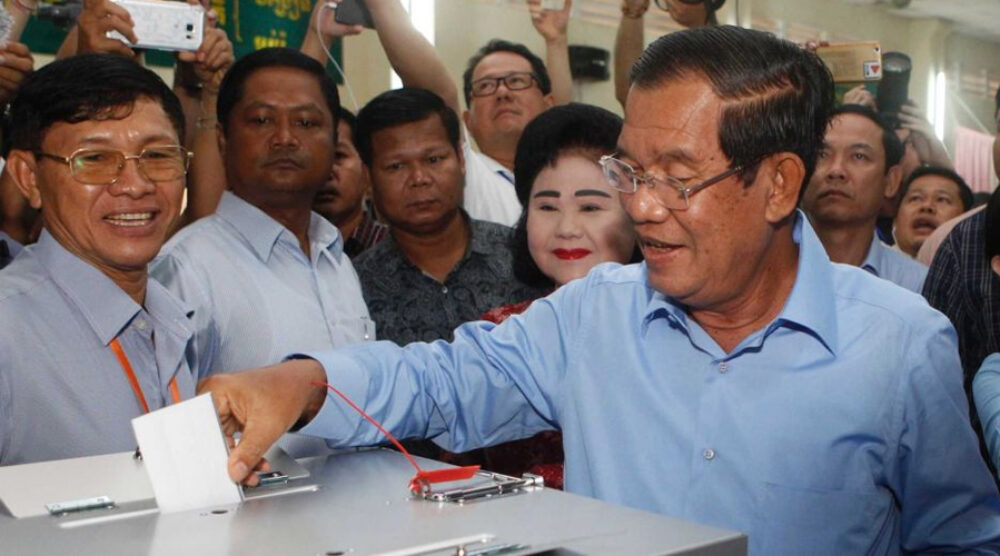Dubious electoral endorsements are becoming normal for dictators worldwide.
Cambodians went to the polls last weekend, but it was a sham of an election, dominated by Hun Sen, the country’s aging autocrat. With the opposition party banned and soldiers at polling booths to ensure the outcome went only one way, no credible organization signed off on the election’s validity—but quite a few fake organizations did.
Election observation in authoritarian regimes is a relatively new phenomenon. Beginning in the late 1980s, the number of elections monitored by intergovernmental organizations, nongovernmental organizations, and sovereign states increased substantially. This brought increased criticism of the behavior of authoritarian regimes, which signaled their compliance to the norm of external observation in exchange for certain benefits, such as legitimacy, foreign direct investment, and membership in international organizations. This gave democracy promotion actors, which coordinated a majority of election-monitoring missions, newfound leverage over the behavior of authoritarian regimes. In the last decade, however, dictators have fought back.
Please click here to read the full “Fake monitors endorse Cambodia’s sham election” article published at Foreign Policy, written by Griffith Asia Institute member, Dr Lee Morgenbesser.








